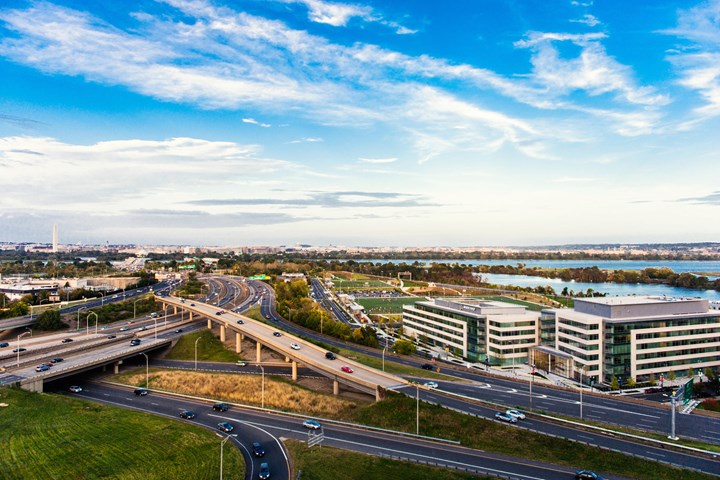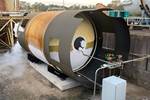Boeing to move headquarters from Chicago to Northern Virginia
In addition to proving a more strategic proximity to its global customers and stakeholders, Boeing’s transition serves to develop a research and technology hub to harness and attract engineering and technical capabilities.

Boeing Northern Virginia office. Photo Credit: Boeing
On May 5, Boeing (Arlington, Va., U.S.) announced that its Arlington, Va., campus just outside Washington, D.C. will serve as the company's global headquarters. The aerospace and defense firm’s employees in the region support various corporate functions and specialize in advanced airplane development and autonomous systems. In addition to designating Northern Virginia as its new headquarters, Boeing plans to develop a research and technology hub in the area to harness and attract engineering and technical capabilities.
“We are excited to build on our foundation here in Northern Virginia,” Boeing president and chief executive officer (CEO) Dave Calhoun, says. “The region makes strategic sense for our global headquarters given its proximity to our customers and stakeholders, and its access to world-class engineering and technical talent.”
Boeing will still maintain a significant presence at its Chicago location and surrounding region. “We greatly appreciate our continuing relationships in Chicago and throughout Illinois,” Calhoun adds. “We also want to especially thank Governor Youngkin for his partnership, and Senator Warner for his support as we worked through the process.”
Over the past two years, Boeing reports that it has implemented flexible and virtual solutions that have enabled the company to reduce its office space needs. At its Chicago office, less office space will be required for the employees who will continue to be based there. Boeing will adapt and modernize the workspace to better support future work requirements.
“In today’s business environment, we have adopted a flexible work strategy in parts of our company and are taking steps to be more efficient within a reduced footprint. This helps us channel investments toward our critical manufacturing and engineering facilities and training resources,” Calhoun notes.
As part of its effort to tap into engineering and technology talent across the U.S and around the world, Boeing also plans to establish a research and technology hub in Northern Virginia. The hub will focus on developing innovations in the areas of cybersecurity, autonomous operations, quantum sciences and software and systems engineering, as “the future of Boeing is digital” according to Greg Hyslop, Boeing’s chief engineer and executive vice president of engineering, test and technology.
Said to be the nation’s largest exporter, Boeing employs more than 140,000 people and is hiring as the commercial market recovers and the company invests in production, innovation and product development. The company’s three business units will continue to be based at their current headquarters, which include:
- Boeing Commercial Airplanes in Seattle, Wash., U.S.
- Boeing Global Services in Plano, Texas, U.S.
- Boeing Defense, Space and Security in Arlington, Va., U.S.
In addition to the company's operations, Boeing works with more than 12,000 businesses supporting more than one million supplier jobs across the U.S., and located in every state. Globally, the company has operations in more than 65 countries.
Related Content
-
Combining multifunctional thermoplastic composites, additive manufacturing for next-gen airframe structures
The DOMMINIO project combines AFP with 3D printed gyroid cores, embedded SHM sensors and smart materials for induction-driven disassembly of parts at end of life.
-
PEEK vs. PEKK vs. PAEK and continuous compression molding
Suppliers of thermoplastics and carbon fiber chime in regarding PEEK vs. PEKK, and now PAEK, as well as in-situ consolidation — the supply chain for thermoplastic tape composites continues to evolve.
-
Plant tour: Albany Engineered Composites, Rochester, N.H., U.S.
Efficient, high-quality, well-controlled composites manufacturing at volume is the mantra for this 3D weaving specialist.
















